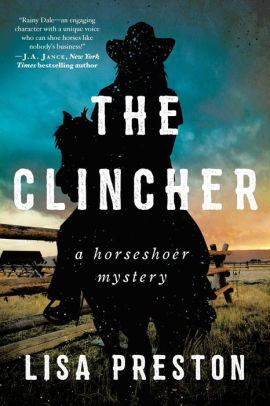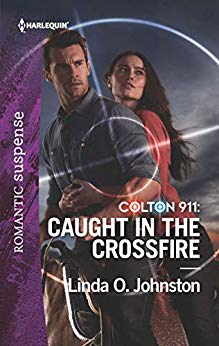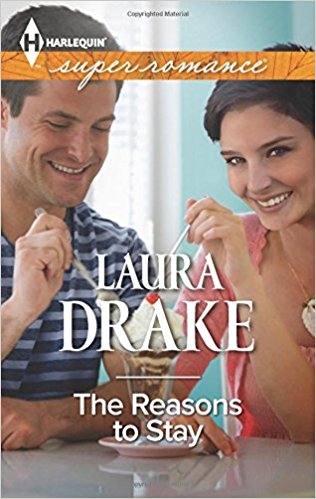Story Ideas by Kat Martin
June 24, 2021 by marianne h donley in category Apples & Oranges by Marianne H. Donley, Guest Posts tagged as Best Selling author, Kat Martin, new release, romance, romantic suspense, The Perfect Murder
Story Ideas
People often ask how I come up with ideas for my novels. Sometimes it just seems to pop into my head. In my latest release, THE PERFECT MURDER, once I had told Chase and Brandon Garrett’s story, there was no doubt I would be writing Reese’s story.
Much of the story was determined by the previous novels, THE CONSPIRACY, and THE ULIMATE BETRAYAL. Reese, the middle brother, is CEO of Garrett Resources, a billion-dollar oil and gas corporation owned by the Garrett family. I knew him well by the time I started his story, the last book in the Maximum Security Series.
In THE PERFECT MURDER, Reese is a man with a past who is determined to retain his hard-earned reputation by avoiding an affair with the beautiful woman who works for him, a valued and trusted employee.
When McKenzie Haines is accused of murder, Reese is forced to make a choice—one that could destroy his career or get him killed. It’s a fast-paced, high-stakes action adventure as well as a love story between two smart, determined people who refuse to give up no matter the odds.
I hope you’ll watch for THE PERFECT MURDER and that you enjoy.
Till next time, happy reading and all best wishes,
Kat

New York Times bestselling author Kat Martin, a graduate of the University of California at Santa Barbara, currently resides in Missoula, Montana with Western-author husband, L. J. Martin. More than seventeen million copies of Kat’s books are in print, and she has been published in twenty foreign countries. Fifteen of her recent novels have taken top-ten spots on the New York Times Bestseller List, and her novel, BEYOND REASON, was recently optioned for a feature film. Kat’s latest novel, THE ULTIMATE BETRAYAL, a Romantic Thriller, was released in paperback December 29th. The final 2 books in her Maximum Security series will be release in June, COME MIDNIGHT, a short story on June 1st, and THE PERFECT MURDER, a novel in hardcover on June 22nd.

Excerpt
The Perfect Murder
Chapter One
Galveston, Texas
Last Day of July
Seconds after the chopper lifted off the pad, Reese felt the odd vibration. Along with the pilot and co-pilot and five members of the crew, the Eurocopter EC135 was headed for the Poseidon offshore drilling platform.
For a moment, the ride leveled out and Reese relaxed against his seat. As CEO of Garrett Resources, the billion-dollar oil and gas company he owned with his brothers, he was always searching for the right investment to expand company holdings, the reason he was flying out to the platform.
For months he’d been working with Sea Titan Drilling, the owner of the offshore rig, to complete the five-hundred-million-dollar purchase, an extremely good value when the average price of a similar rig was around six-fifty.
The vibration returned and with it came a grinding noise that put Reese on alert. The men in the cabin began to glance back and forth and shift nervously in their seats. A sharp jolt, then the chopper seemed to fall out of the sky. It climbed again, began to dip and sway, dropped then climbed as the pilot fought for control.
The pilot’s deep voice rumbled through the headset. “We’ve got a problem. I don’t want you to panic, but we need to find a place to set down.”
There was definitely a problem, Reese thought, as the vibration continued to worsen. The chopper was out of control and the whole cabin was shaking as if it would break apart any minute. His pulse was hammering, his adrenalin pumping.
Along with the men in the crew who rode back and forth from the rig every few weeks, he stared out the window toward the ground. They were no longer above the heliport. Clearly the pilot was looking for an open space big enough to handle the thirty-six-foot blade span. All Reese could see were the rooftops of warehouses and metal commercial buildings.
The chopper kept shaking. The crew was grim-faced but resigned. The pilot did something to take the pitch out of the rotors and the chopper started falling.
“No need to worry,” the pilot said. “We’ll auto-rotate down. I’ve done it a dozen times.”
Auto rotate down. Reese knew the concept, the technique helicopter pilots used to land when the engine failed. The trick was to find a safe place to hit the ground.
Both engines went silent. The blades were flat now, the wind whistling through them, tying his stomach into a knot.
“Brace for impact,” the pilot said. Below them, Reese spotted an open flat slab of asphalt in the yard of a small trucking firm–the only possible landing site anywhere around. Trouble was it didn’t look wide enough to handle the blades.
At the last second, the pilot flared the helicopter in an effort to slow the descent, then the ground rushed up and the chopper hit with a jolt that wracked Reese’s whole body.
For an instant, he thought they were going to make it. Then one of the spinning rotor blades hit the corner of a building and tore free. The Plexiglas bubble shattered as the long metal blades exploded into a hundred deadly pieces, careening like knives through the air, slicing into buildings and the cabin of the helicopter.
Reese didn’t feel the impact. One moment he was conscious, then the world suddenly went black.
Other Books in the Maximum Security Series
(Click on the cover for more information. Hover on the cover for buy links.)
0 0 Read more
Making Your Story Believable by Kat Martin
May 29, 2021 by marianne h donley in category Apples & Oranges by Marianne H. Donley, Guest Posts tagged as intrigue, Kat Martin, new release, romance, romantic suspense, Suspense, woman's fiction
Over the years, I’ve found one of the best ways to make your story believable is to use real places to locate the action and real names of restaurants and streets. Actually going there, of course, is the best way to make that happen.
In my new novella, COME MIDNIGHT, Breanna Winters, seated on an airliner next to a good-looking man in an expensive suit, finds herself kidnapped by Honduran terrorists. She doesn’t expect Derek Stiles, a corporate executive, to put his life at risk by volunteering to go along when Bree is dragged from the plane and marched into the jungle.
Unfortunately, I have never been to the jungle in Honduras or any jungle for that matter, aside from a brief visit to a tropical rain forest in Brazil and a stop in Belize.
So for this story, I didn’t go to Honduras, but I did do extensive research, and it wasn’t the first time. Beginning with with an old historical, SAVANNAH HEAT, set in the Yucatan Peninsula of Mexico and more recently, THE CONSPIRACY, which travels from the Caribbean to Columbia, I’ve learned a lot about life in the jungle—and it is far from easy.
In the novella, the good news is Derek Stiles is a former Navy fighter pilot with extensive survival training who has spent time in the jungle before. Still, it’s soon clear they’ll need to depend on each other if they’re going to survive.
I hope you will give COME MIDNIGHT a try and that you will look for Derek again in my full-length novel, THE PERFECT MURDER, out June 22nd, the last book in my Maximum Security Series
Till next time, all best wishes and happy reading, Kat

New York Times bestselling author Kat Martin is a graduate of the University of California at Santa Barbara where she majored in Anthropology and also studied History. Currently residing in Missoula, Montana with her Western-author husband, L. J. Martin, Kat has written sixty-five Historical and Contemporary Romantic Suspense novels. More than sixteen million copies of her books are in print and she has been published in twenty foreign countries. Kat is currently at work on her next Romantic Suspense.

Excerpt
Come Midnight
Kat Martin
The sound of a baby’s high-pitched, incessant crying put his teeth on edge. Derek Stiles forced himself to relax as he settled back in his wide business class seat. The airplane engines hummed outside the window, dulling the noise a little, but the crying only grew louder.
Derek silently cursed. His trip to Colombia had already gotten off to a rocky start when a meeting in the Houston office of Garrett Resources, where he worked as VP of Mergers and Acquisitions, ran overtime and he’d missed his non-stop flight. Now he’d be landing in El Salvador, laying over a couple of hours before changing planes and continuing on to Bogota, not getting to his hotel until well after dark.
He pulled out his laptop and set it on the fold-down table in front of him. He usually worked on a flight. He always had plenty to do, but he’d been staying up late every night so he also needed some sleep. It was important to be at the top of his game first thing in the morning.
The baby’s cries grew louder and his nerves revved up. He hadn’t really noticed the woman sitting in the seat beside him until she stood up and turned toward mother and child in the row behind him.
She jangled her car keys over the back of the seat and smiled. “Look, baby. Look at these. I bet you’d like to play with these, wouldn’t you?” The baby’s crying slowed, turned to whimpers, then sniffles, then stopped altogether. Glancing over his shoulder, Derek watched a little girl bundled in pink, maybe a year old, reach up for the car keys.
“I never thought of that,” the mother said, sounding desperate and making him feel guilty. He didn’t have kids but he could imagine how tough it would be to take a child on an international flight.
The mom, a black-haired woman in her mid-twenties, took out her own set of keys and held them up, but the baby ignored them, fascinated by the glittering heart on the end of the other keychain dangling in front of her.
“I hate to ask you this,” the mother said, “but is it all right if Sophie plays with your keys for a while?”
“Absolutely,” his seatmate said. She was pretty, he realized, with long blond hair and big blue eyes. A little above average height, slender but curvy in all the right places. “Once we’re in the air,” she continued, “if you want me to hold her, give you a little break, I’d be happy to.”
The mother’s smile held relief mixed with gratitude. “I might just take you up on that. My name is Carmen, by the way.”
“Breanna.” Her smile went even brighter and Derek felt an unexpected kick. He was usually able to leave his libido behind when he was away on business.
“You have a darling baby,” Breanna said.
Carmen smiled. “Thank you.”
The flight attendant urged Breanna to sit back down so the flight could get underway, and the engines roared, preparing for take-off.
“So I guess you’re a mom,” Derek heard himself saying, though he made it a habit not to talk on a flight. He always had too much to do.
Breanna shifted toward him. “I’d love to have children someday, but I’m not a mother yet. I work with kids so I know a few tricks.”
“What kind of work do you do?”
“I’m with a non-profit called Shelter the Children. Abrego Los Ninos in Spanish. We support an orphanage in a little village outside San Salvador. That’s where I’m headed.”
He smiled and held out a hand. “Derek Stiles. I know your name is Breanna.”
“Yes. Everyone just calls me Bree.”
They were an hour out of San Salvador International Airport when Derek noticed a commotion at the rear of the cabin.
Then the curtain behind the business class section jerked open and a lean, black-haired man stood in the aisle. Derek’s blood ran cold when he noticed the assault rifle strapped across the intruder’s chest.
Pre-order Come Midnight
Spotlight On Terri Osburn
May 27, 2021 by marianne h donley in category Apples & Oranges by Marianne H. Donley, Spotlight tagged as new release, Not You Again, romantic comedy, Terri Osburn, The Not Series

Terri Osburn writes contemporary romance with heart, hope, and lots of humor. After landing on the bestseller lists with her Anchor Island Series, she moved on to the Ardent Springs series, which earned her a Book Buyers Best award in 2016. Terri’s work has been translated into five languages, and has sold more than 1.5 million copies worldwide. She resides in middle Tennessee with four frisky felines, and two high-maintenance terrier mixes. Learn more about this international bestseller and her books at www.terriosburn.com. Or check out her Facebook page at https://www.facebook.com/TerriOsburnAuthor.
Terri’s Newest Release
Not You Again
Four blind dates in five days. I can’t believe I agreed to this.

Actually, I can. That’s what I do. I agree to things I don’t want to do to make other people happy. In this case, my four best friends. They’re worried about me and if going on a few dates will make them happy, then I’ll do it. How bad could they be?
I probably shouldn’t have asked that.
I’m starting to seriously wonder if my friends know me at all. Each pick is worse than the last, and none of them compare to my former fiancé. But then I guess maybe that’s the point. Someone new to help me forget the old.
To help me move on.
Except I don’t need a man to prove that I’ve moved on. Why can’t my friends understand that? And why does the same beautiful stranger keep saving me from these awful encounters? The universe seems to be throwing him into my path, and the more time I spend with him the more I wish that he was one of the dates.
There’s one more date left and I can’t help but wonder if he’ll pop up again. How many chance encounters can two people have? Pittsburgh is a big city so the chances are slim.
But what if…?
0 0 Read more
Sing to Me of Rain Book Tour and Giveaway
May 25, 2021 by marianne h donley in category Apples & Oranges by Marianne H. Donley, Rabt Book Tours tagged as E.B.Dawson, excerpt, fantasy, middle-grade fiction, new release
Date Published: 5/22/21
An innocent naiad. A wounded boy. An adventure that will change their lives forever.
Plip is a naiad of the Great Waterfall, destined to one day sing the songs that send rain out into the world.
Akino isn’t destined for anything but trouble. His father long gone, his mother working on a plantation far away, he doesn’t really belong in the village below the Waterfall. And the villagers don’t let him forget it.
When Akino convinces Plip to travel down the mountain with him, for his own selfish purposes, he launches them into a world more dangerous than either of them could imagine. A world where people are not always what they seem and the rain does not fall evenly across the land.
About the Author
E.B. Dawson was born out of time. Raised in the remote regions of a developing nation, traveling to America was as good as traveling thirty years into the future. Now she writes science fiction and fantasy to make sense of her unusual perspectives on life. Her stories acknowledge darkness, but empower and encourage people to keep on fighting, no matter how difficult their circumstances may be. She currently lives in Idaho with her family and her cat Maximus.
Contact Links
Purchase Links
A Rafflecopter Giveaway
Sing to Me of Rain
by E.B. Dawson
Captured
Plip shook herself and looked about tentatively. Out the opening of the globe, the caravan of kempelas strode on tirelessly over an endless sea of yellow sand. The bright blue sky hung low and thick all about them, almost tangible. Plip had the sensation for a moment that they were actually walking along the bottom of a great river, surrounded not by sky, but water.
Strange gray outcroppings began to emerge out of the blue. Porous rock which had been carved by the wind into sharp, jagged formations, like the teeth of some great monster.
But the illusion of water only reminded her how very far she was from the clear streams of the Mountain. She turned her attention to the orange sphere which housed her.
It seemed to be made of thick skin, stretched taut over a strong wooden frame. All about her were sacks of spices, piles of soft carpets, and various objects of fine metal, plus a plethora of items she could not identify. But just to her right was a cage with a very frightened looking bird inside. He was rather small and black, with a tuft of brilliant blue on his breast and matching blue rings around his eyes.
He kept tilting his head back and forth as he watched Plip and hopping left and right every few seconds.
“Poor thing. You’re as frightened as I am.”
The bird shrieked in alarm. His feathers puffed out all around his head and breast, forming a great black oval and revealing a larger stripe of bright blue. He shuffled back and forth in a funny little dance. His head seemed to have disappeared entirely.
Plip watched silently, thoroughly impressed but a bit confused, until the dance ended, and the little bird’s feathers settled back into place, revealing his head once more.
“Amazing!” Plip whispered.
The bird hopped backwards, lowered its head towards the floor and tilted its beak up suspiciously. “You did speak!” he cried, in a shrill voice. “Oh, this is terrible. What kind of a demon are you?”
“But you’re talking too,” Plip protested.
“I’m a shangrila bird, of course I can talk.”
“I never knew any birds that could talk,” Plip said.
The shangrila bird ruffled his feathers. “And how many birds have you known?”
“Well, none really.”
“Hmph. I thought as much. Birds are wildly misunderstood by bottom dwellers.”
“Bottom dwellers?”
“That’s what I said. Most of the world is made up of sky. Or do you never bother to look up?”
“I never thought of it that way,” Plip admitted, though she didn’t particularly like the bird’s tone.
“What am I thinking, trying to explain things to a sprite?” The bird straightened his neck.
“Who’s a sprite?”
“You are!” He flapped his wings impatiently.
“I’m not a sprite, I’m a naiad!”
“What’s the difference?”
Plip frowned. “As a matter of fact, I don’t know. What’s a sprite, exactly?”
“They live in the clouds,” the shangrila said. “They’re the ones who make it rain…or not rain, as the case may be.” He began pruning himself absentmindedly.
“They’re not the ones who make rain,” Plip protested. “The naiads and Weather Masters do that.”
“What nonsense are you babbling?”
Plip crossed her arms in irritation. “It isn’t nonsense, and I should think I know more about it than you, anyway.”
“Oh, really? You didn’t even know what a sprite was!” The shangrila crossed his wings comically.
Plip did a quick somersault inside her jar. “Well, I’ve never been inside a cloud.”
“My point exactly.” The shangrila would not look at her.
Curiosity softened Plip’s temper. “So, what is a sprite, exactly? Do they look like me?”
“A great deal…though now that I come to think of it, there are significant differences. You wouldn’t last long in the clouds; you are entirely too solid.”
Plip was beginning to suspect that there was no real ill will behind the shangrila’s insults. “And they don’t talk?”
“Certainly not. They haven’t the capacity for it. They aren’t really sentient, you know.”
“I didn’t know,” Plip said somberly.
“Well,” said the bird in a satisfied tone, “you are young.”
“I wonder if the Weather Masters know about the sprites,” Plip said softly to herself. “Please, Mr. Bird—”
“Mr. Burung, if you please.”
“Please, Mr. Burung, do you know how they make it rain?”
Burung stuck his chest out and cleared his throat. “Ah, well you see, it’s all rather involved and multifaceted and one might even say interdimensional.”
Plip’s eyes grew wide.
“It would take an expert to explain the process thoroughly, which I am not—though I understand why you may think I am. But I do think even the experts would agree that it could all be summed up by the word evaporation.”
Plip frowned.
“Yes, evaporation is that complicated process by which a cloud sheds its water and rain falls to the earth.”
“And the sprites help with this process?”
“Just so. And it must be quite a messy business, too. For they seem to always be squabbling among themselves.”
“This is all so much more complicated than I ever understood,” Plip sighed.
“As is life,” Burung said with a dramatic sigh, “as is life.”
“I wish Akino were here.”
“Who’s Akino?” Burung asked.
“He’s my friend. He’s clever and brave and used to being on his own.” She sighed again. “Do you know where they’re taking us?”
“Somewhere terrible, I expect.” Burung sunk his head into his shoulders. “The Sand Plains are not known for their spiritual enlightenment. They stopped visiting the White Temple decades ago.”
“What is the White Temple?” Plip asked.
“Bless me,” Burung cawed, “it’s sentient, but it’s a heathen. The White Temple is only the holiest place in all the lands. It is where the physical world and the spirit world connect. All those seeking enlightenment find their way there eventually.”
“Have you been there?”
Burung rocked back and forth in a self-satisfied manner. “Many times. The White Temple is located in the center of the forest which I call home. The White Monks are kind to my people and often choose us as companions for their lifelong journey toward enlightenment.”
“I had no idea!” Plip was duly impressed, even if she didn’t fully understand what it was she was impressed by. “What does enlightenment mean?”
Burung sighed. “Spiritual knowledge and understanding of Maha.”
“What is maha?”
“Maha is the ultimate being, the origin and sustainer of life. The sun rises by his decree.”
“Oh, you mean the Creator!” Plip gasped. “He taught the first naiads to sing and gave the Weather Masters their skill.”
“I suppose so,” Burung looked a little puzzled, “though I have never heard of you or your weather masters.”
Just then a man entered the globe, momentarily blocking out the dazzling sunlight and casting a shadow directly over Burung.
Good Lookin’ Book Tour and Giveaway
May 24, 2021 by marianne h donley in category Apples & Oranges by Marianne H. Donley, Rabt Book Tours tagged as @RABTBookTours, Good Lookin' A Joe Turner Mystery, new release, T.L. Bequette
Good Lookin’
A Joe Turner Mystery
by
T.L. Bequette
Date Published: May 24, 2021
Publisher: The Wild Rose Press
From the gang-ravaged streets of inner-city Oakland to the rolling hills of Berkeley, California, attorney Joe Turner defends the most hardened criminals. Confronted with an unlikely murderer in a modern-day whodunnit, Turner’s latest case seems impossible to unravel. At its heart is a decade-old murder and a tangled web of family, loyalty, and devotion that has the trial hanging in the balance. Viewed through the prism of the unique bond of twins, Good Lookin’ asks how far each of us will go to protect the ones we love.
Contact Links
Purchase Link
Good Lookin’
A Joe Turner Mystery
by
T.L. Bequette
Excerpt
For a split second I thought about running, but Dunigan filled the doorway as he picked up the deputy with his handcuffed meat hooks and effortlessly tossed him into the hallway. I’ll never forget the hollow clang of the metal door when he shut it, locking us inside the tiny room.
I smashed a red alarm button on the wall behind me just before Dunigan slid the heavy metal table across the room as if it were made of plastic, pinning me against the wall. The behemoth leaned on the table and stared at me, eyes wild and grinning maniacally. He took a couple deep breaths and forcefully blew the air and spittle out through his yellowed teeth.
He stood up straight, keeping me pinned to the wall, leaning his girth against the table. I tried to push it away with both hands, twisting frantically but it was useless against his weight and strength. His grin widened and his breathing intensified—as did the production of spit— as if aroused by my fear. Then he reached towards my head with his two hands the size of catcher’s mitts, holding them there a few inches from my head. I turned sideways and pressed my cheek against the wall, keeping sight of his hands with one eye that pulsed with panic. He kept his hands there, close to my face, reveling in the anticipation. I pictured his hands squeezing my head, his thumbs entering my brain through my eye-sockets.
Affiliate Links
A Slice of Orange is an affiliate with some of the booksellers listed on this website, including Barnes & Nobel, Books A Million, iBooks, Kobo, and Smashwords. This means A Slice of Orange may earn a small advertising fee from sales made through the links used on this website. There are reminders of these affiliate links on the pages for individual books.
Search A Slice of Orange
Find a Column
Archives
Featured Books
NOT YOU AGAIN
Four blind dates in five days. I can’t believe I agreed to this.
More info →COLTON 911: CAUGHT IN THE CROSSFIRE
From hunting cattle rustlers
To being hunted by a killer
THE CHRISTMAS WISH
Will Eve find it’s possible that Christmas wishes aren’t only for little girls?
More info →Newsletter
Contributing Authors
Search A Slice of Orange
Find a Column
Archives
Authors in the Bookstore
- A. E. Decker
- A. J. Scudiere
- A.J. Sidransky
- Abby Collette
- Alanna Lucus
- Albert Marrin
- Alice Duncan
- Alina K. Field
- Alison Green Myers
- Andi Lawrencovna
- Andrew C Raiford
- Angela Pryce
- Aviva Vaughn
- Barbara Ankrum
- Bethlehem Writers Group, LLC
- Carol L. Wright
- Celeste Barclay
- Christina Alexandra
- Christopher D. Ochs
- Claire Davon
- Claire Naden
- Courtnee Turner Hoyle
- Courtney Annicchiarico
- D. Lieber
- Daniel V. Meier Jr.
- Debra Dixon
- Debra H. Goldstein
- Debra Holland
- Dee Ann Palmer
- Denise M. Colby
- Diane Benefiel
- Diane Sismour
- Dianna Sinovic
- DT Krippene
- E.B. Dawson
- Emilie Dallaire
- Emily Brightwell
- Emily PW Murphy
- Fae Rowen
- Faith L. Justice
- Frances Amati
- Geralyn Corcillo
- Glynnis Campbell
- Greg Jolley
- H. O. Charles
- Jaclyn Roché
- Jacqueline Diamond
- Janet Lynn and Will Zeilinger
- Jaya Mehta
- Jeff Baird
- Jenna Barwin
- Jenne Kern
- Jennifer D. Bokal
- Jennifer Lyon
- Jerome W. McFadden
- Jill Piscitello
- Jina Bacarr
- Jo A. Hiestand
- Jodi Bogert
- Jolina Petersheim
- Jonathan Maberry
- Joy Allyson
- Judy Duarte
- Justin Murphy
- Justine Davis
- Kat Martin
- Kidd Wadsworth
- Kitty Bucholtz
- Kristy Tate
- Larry Deibert
- Larry Hamilton
- Laura Drake
- Laurie Stevens
- Leslie Knowles
- Li-Ying Lundquist
- Linda Carroll-Bradd
- Linda Lappin
- Linda McLaughlin
- Linda O. Johnston
- Lisa Preston
- Lolo Paige
- Loran Holt
- Lynette M. Burrows
- Lyssa Kay Adams
- Madeline Ash
- Margarita Engle
- Marguerite Quantaine
- Marianne H. Donley
- Mary Castillo
- Maureen Klovers
- Megan Haskell
- Melanie Waterbury
- Melisa Rivero
- Melissa Chambers
- Melodie Winawer
- Meriam Wilhelm
- Mikel J. Wilson
- Mindy Neff
- Monica McCabe
- Nancy Brashear
- Neetu Malik
- Nikki Prince
- Once Upon Anthologies
- Paula Gail Benson
- Penny Reid
- Peter Barbour
- Priscilla Oliveras
- R. H. Kohno
- Rachel Hailey
- Ralph Hieb
- Ramcy Diek
- Ransom Stephens
- Rebecca Forster
- Renae Wrich
- Roxy Matthews
- Ryder Hunte Clancy
- Sally Paradysz
- Sheila Colón-Bagley
- Simone de Muñoz
- Sophie Barnes
- Susan Kaye Quinn
- Susan Lynn Meyer
- Susan Squires
- T. D. Fox
- Tara C. Allred
- Tara Lain
- Tari Lynn Jewett
- Terri Osburn
- Tracy Reed
- Vera Jane Cook
- Vicki Crum
- Writing Something Romantic
Affiliate Links
A Slice of Orange is an affiliate with some of the booksellers listed on this website, including Barnes & Nobel, Books A Million, iBooks, Kobo, and Smashwords. This means A Slice of Orange may earn a small advertising fee from sales made through the links used on this website. There are reminders of these affiliate links on the pages for individual books.




























































